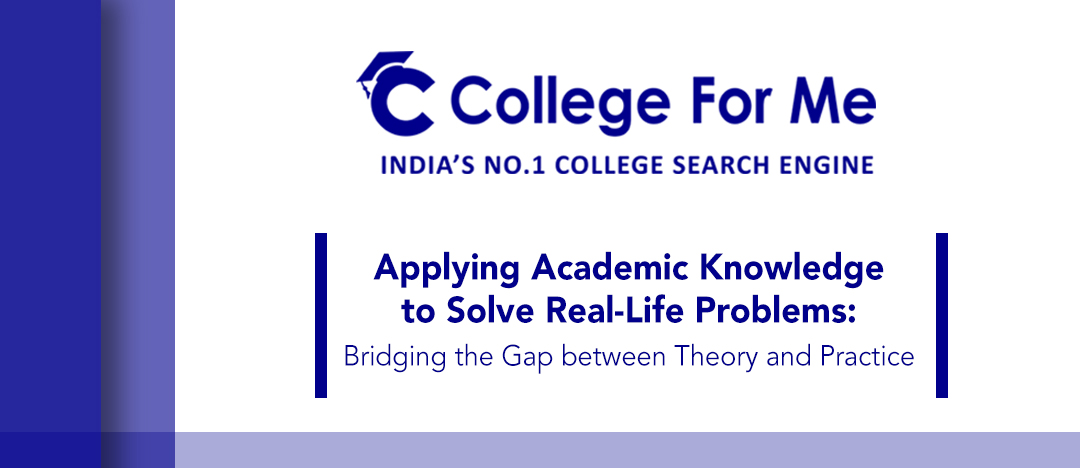Career Scopes Of A B.Tech. Student
There is a high demand for B.Tech. degree holders in the private sector, yet, there is also the opti...

Academic knowledge serves as a foundation for understanding the world and developing new ideas. However, the true value of education lies in its application to real-life problems. The ability to bridge the gap between theory and practice is essential for making a meaningful impact on society. In this article, we will explore the importance of applying academic knowledge to solve real-life problems and discuss some examples of successful applications.
Understanding the Relevance of Academic Knowledge:
Academic knowledge provides us with a deep understanding of various subjects, ranging from sciences to humanities. It equips us with critical thinking skills, research methodologies, and problem-solving techniques. However, the true potential of this knowledge can only be realized when it is applied to real-life challenges. By connecting theoretical concepts to practical situations, we can bring about tangible and meaningful change.
Addressing Societal Issues:
One of the primary benefits of applying academic knowledge is its potential to address societal issues. Researchers and scholars, armed with their expertise, can offer valuable insights and innovative solutions to problems plaguing communities. For instance, in the field of environmental science, academic research on climate change has led to the development of sustainable technologies and policies aimed at reducing carbon emissions and conserving natural resources.
Enhancing Public Health:
Academic knowledge is instrumental in improving public health outcomes. Medical research, for example, leads to the discovery of new treatments, preventive measures, and diagnostic tools. By translating scientific findings into practical applications, healthcare professionals can combat diseases, save lives, and promote well-being. Vaccines, for instance, are a remarkable example of how academic knowledge in immunology has revolutionized global health, eradicating or significantly reducing the prevalence of numerous infectious diseases.
Driving Technological Advancements:
Applying academic knowledge is crucial for technological advancements. The fields of engineering, computer science, and information technology heavily rely on academic research to innovate and develop cutting-edge solutions. Concepts learned in classrooms and research labs are transformed into real-world applications, such as artificial intelligence, robotics, and renewable energy systems. By leveraging academic knowledge, society benefits from technological progress, which in turn leads to economic growth and improved quality of life.
Fostering Innovation and Entrepreneurship:
Entrepreneurship is fueled by academic knowledge applied to real-world problems. Many successful startups and businesses have emerged from academic research, driven by individuals who recognize the potential of their ideas in solving market gaps or societal challenges. By applying their academic knowledge to practical scenarios, these entrepreneurs bring about disruptive innovations, create jobs, and stimulate economic development.
Conclusion: Applying academic knowledge to solve real-life problems is paramount for the progress and well-being of society. It allows us to harness the full potential of our education and contribute meaningfully to the world around us. From addressing societal issues to driving technological advancements and fostering entrepreneurship, the application of academic knowledge has far-reaching impacts. As educators, students, and researchers, we must strive to bridge the gap between theory and practice, ensuring that our knowledge translates into practical solutions for the benefit of all.

There is a high demand for B.Tech. degree holders in the private sector, yet, there is also the opti...

If you are looking for a bright and prospective career, then getting a B.Tech. in CSE must be under ...
Comments (0)